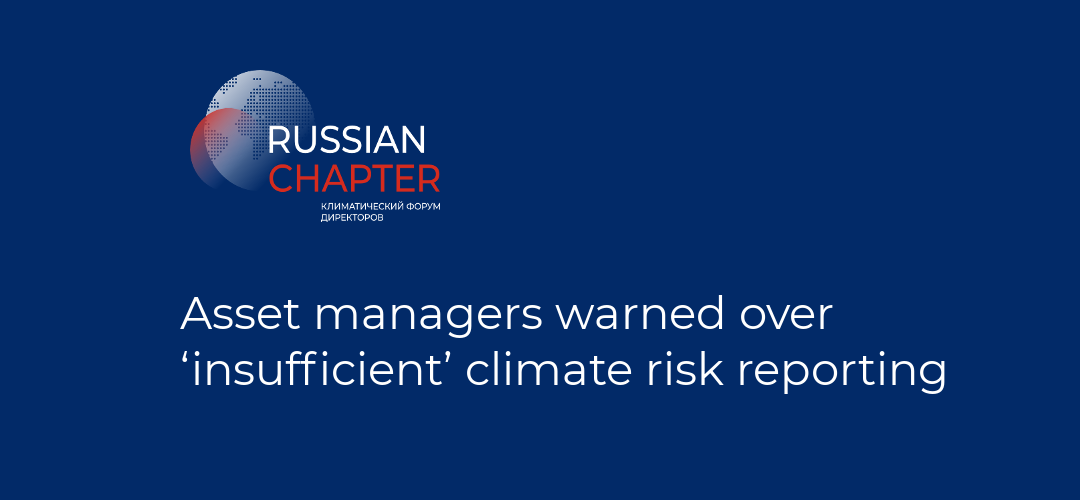Regulatory task force says clients unable to make informed choices
Mattew Vincent
Asset managers are not providing enough information about climate risks at the companies they invest in to enable clients to make informed choices, a regulatory task force has warned. Despite record inflows to funds that invest according to environmental, social and governance principles — taking their assets under management above $1tn this year — the Financial Stability Board’s Task Force on Climate-Related Financial Disclosures has found “reporting to their clients . . . is likely insufficient”. In its third annual status report, published on Thursday, the TCFD said climate risk reporting by asset managers had increased since 2017. However, it concluded that “reporting by these organisations to their clients and beneficiaries may not be sufficient and that more progress may be needed to ensure clients and beneficiaries have the right information to make financial decisions”. According to the TCFD, climate risk reporting by asset managers is essential, given the role they play in the allocation of capital. Their responsibility “includes obtaining information from investee companies, and providing their clients and beneficiaries with decision-useful information”, it said. Michael Bloomberg, the billionaire media executive who chairs the TCFD, stressed the need for better-informed capital allocation when launching the report. “The more companies know about their risks and opportunities related to climate change, and the more information investors have, the better we’ll be able to allocate resources and make progress,” he said. More work will now be carried out by the task force “to better understand” asset managers’ reporting of climate risks. The report said companies also needed to make progress on climate risk disclosures. To date, more than 1,500 organisations have expressed their support for the TCFD’s recommendations, which represents an increase of more than 85 per cent since 2019. A review of their reports also found that disclosure of climate-related financial information in line with those recommendations had “steadily increased” in the past three years. However, the report said disclosure of the financial impacts on businesses “remains low”. Only one in 15 of the companies reviewed disclosed any information on the resilience of their strategies, under different climate scenarios. This was “significantly lower” than the proportion of companies making other climate disclosures. Overall, 42 per cent of companies with a market capitalisation of $10bn or more gave their investors at least some of the information recommended by the TCFD in 2019. European companies led the way, ranking highest for 10 of the task force’s 11 recommended disclosures. But companies in North America were best at communicating climate-related “risks and opportunities”. In sector terms, energy companies, builders and materials suppliers provided the most climate information. Progress towards the TCFD’s end-goals remains slow, though. If the growth rate in climate disclosures since 2017 remained constant in coming years, companies would not be providing all 11 pieces of information that the task force recommends until 2029. Some regulators are now taking action to increase disclosure levels. In March next year, new EU regulation is due to come into force making the online publication of sustainability impacts mandatory. Earlier this year, the UK’s Financial Conduct Authority said all London-listed companies would soon have to make the climate-related disclosures prescribed by the TCFD — or explain why they cannot.


